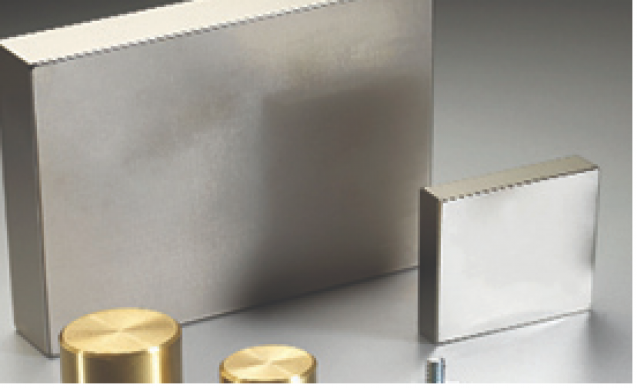Rubber Coated Neodymium NdFeB Magnets
Strong magnet adhesion with surface protection against scratching or marking
Hello...
Would you like to visit the Eclipse Magnetics US site to view all relevant content for your location?
We can offer the complete range of magnet materials to suit different application and operating conditions.

Choosing the right magnet material option for your application can be challenging. There are several magnet material options each with different performance characteristics. As a leading magnet supplier and with our vast experience in magnetic properties we can help you make that choice a clear and simple one.
There are several material choices including Neodymium Magnets (NdFeB or Rare Earth), Alnico Magnets, Samarium Cobalt (SmCo)or Ferrite Magnets (Ceramic). In addition, there are other variations such as Electromagnets, Flexible magnets and Bonded magnets. Choosing the right material is key to project success.
The composition of magnets and the source of their magnetism must be considered in order to classify them. Magnets that retain their magnetism after they have been magnetised are called permanent magnets. Temporary magnets are magnets that perform like permanent ones when in close proximity to a magnetic field, but rapidly lose that effect when removed. An Electromagnet is a wire coil that acts as a magnet upon receiving electrical current. The magnet's strength can also be altered by adjusting the strength and direction of the current.
The types of magnets available are listed below.
Permanent Magnets - Permanent magnets generally fall into four categories: neodymium iron boron (NdFeB), samarium cobalt (SmCo), alnico, or ceramic.
Electromagnets - The creation of an electromagnet is made by winding a wire into loops around a core material. This is also known as a solenoid. By passing electricity through a solenoid, a magnetic field is created for magnetising electromagnets. The strongest field occurs at the inside of the coil, and the intensity of the field increases with the number of loops and the current strength.
You can also learn more about magnets and other metal materials by checking our free guide 'A quick guide to magnets, magnetic metals and non magnetic metals'

When choosing a magnet material it is important to consider the following key questions:-